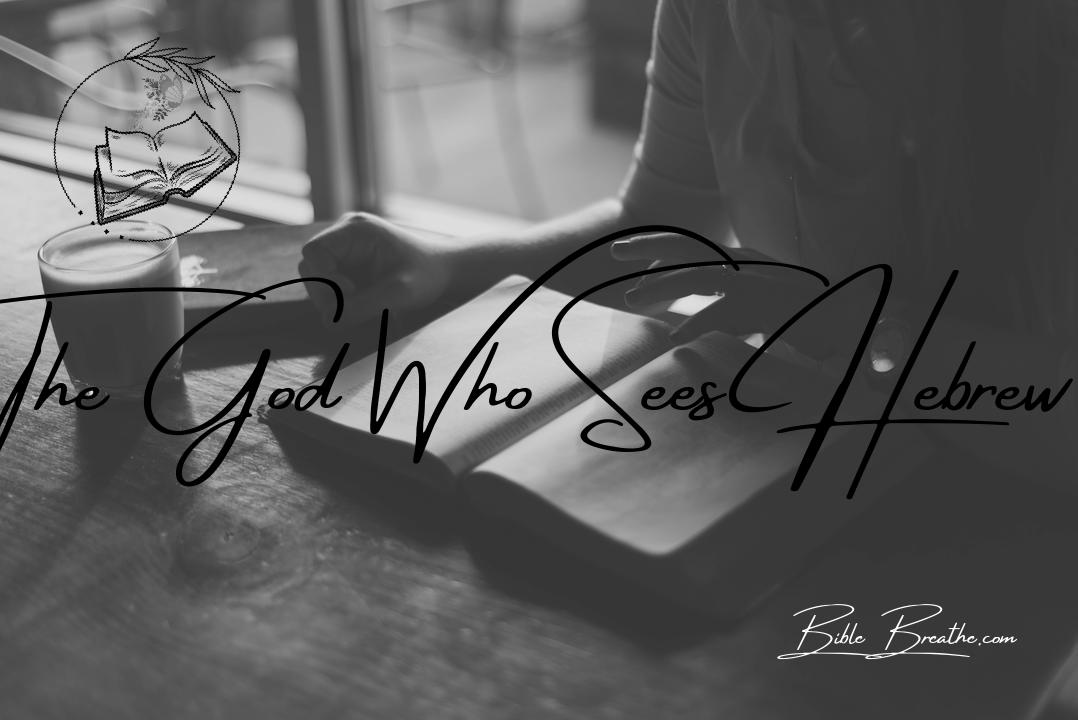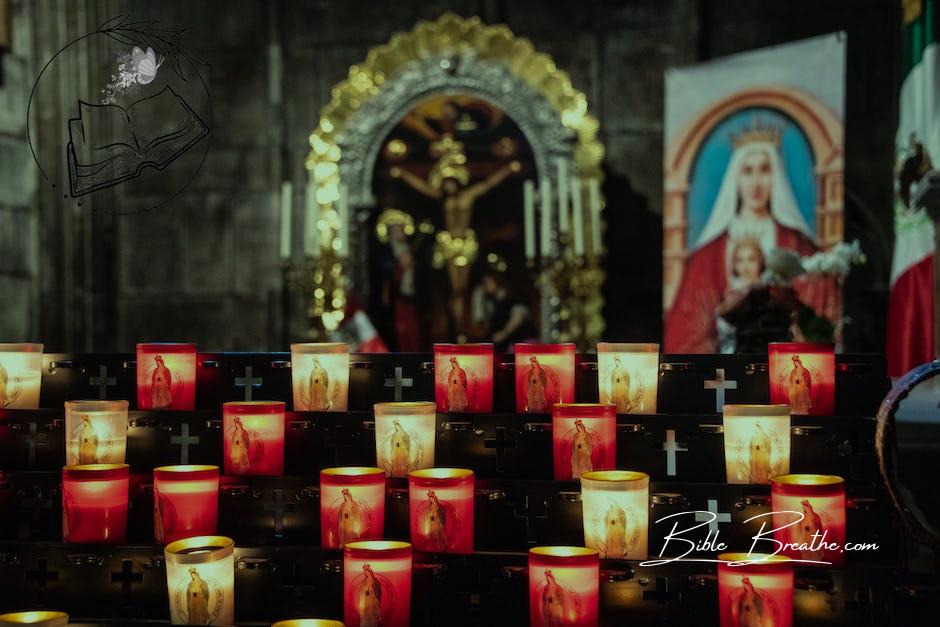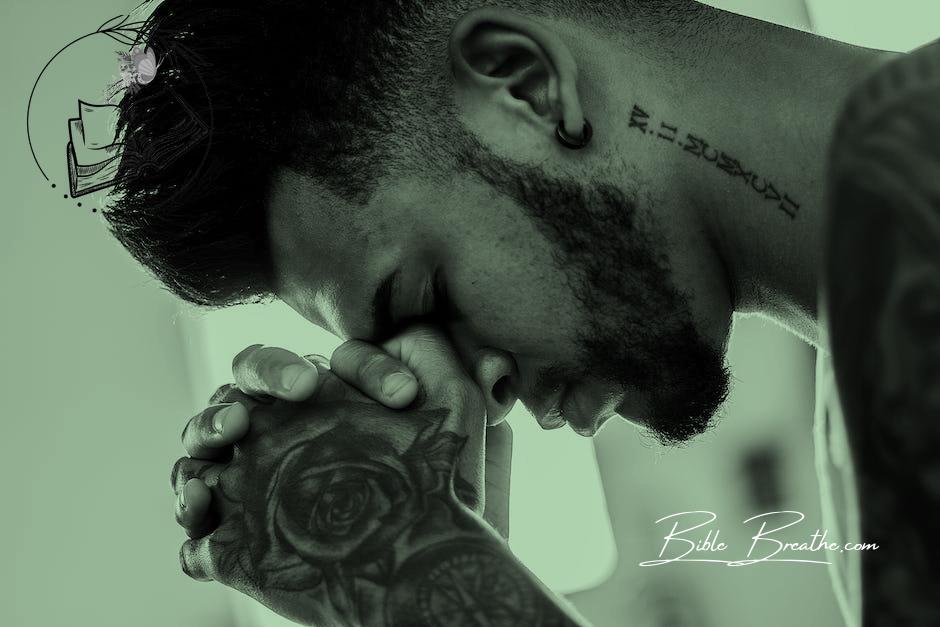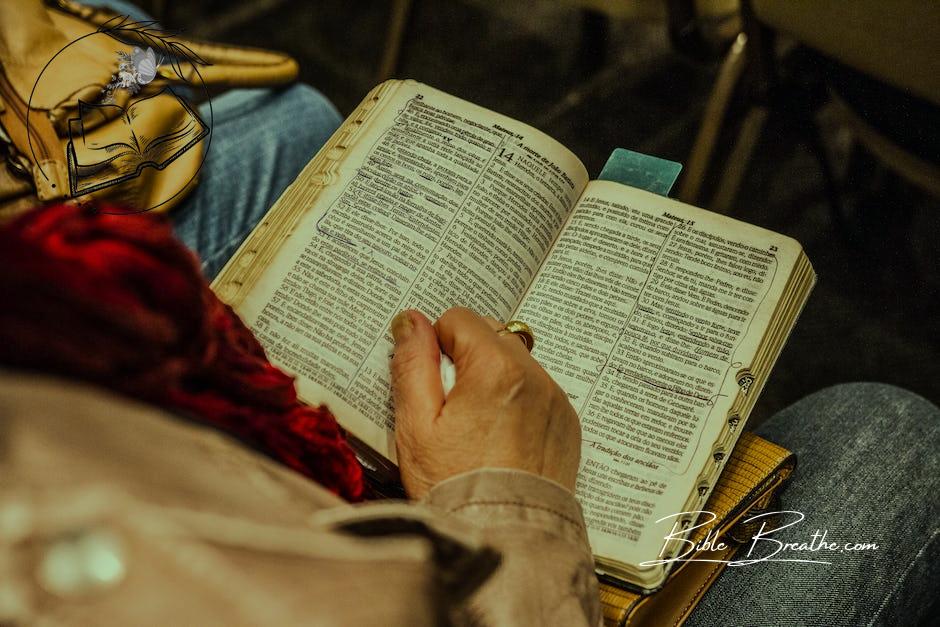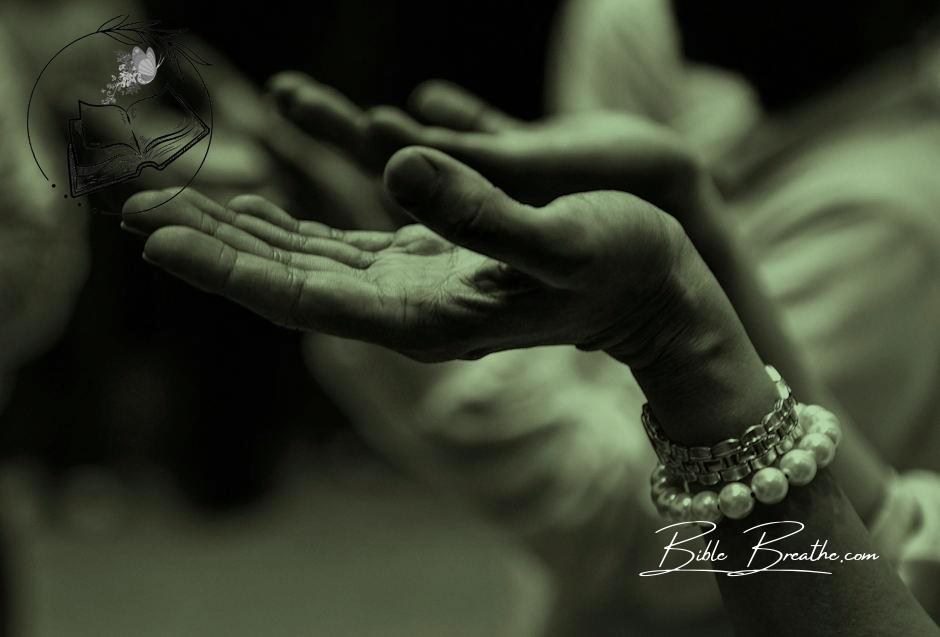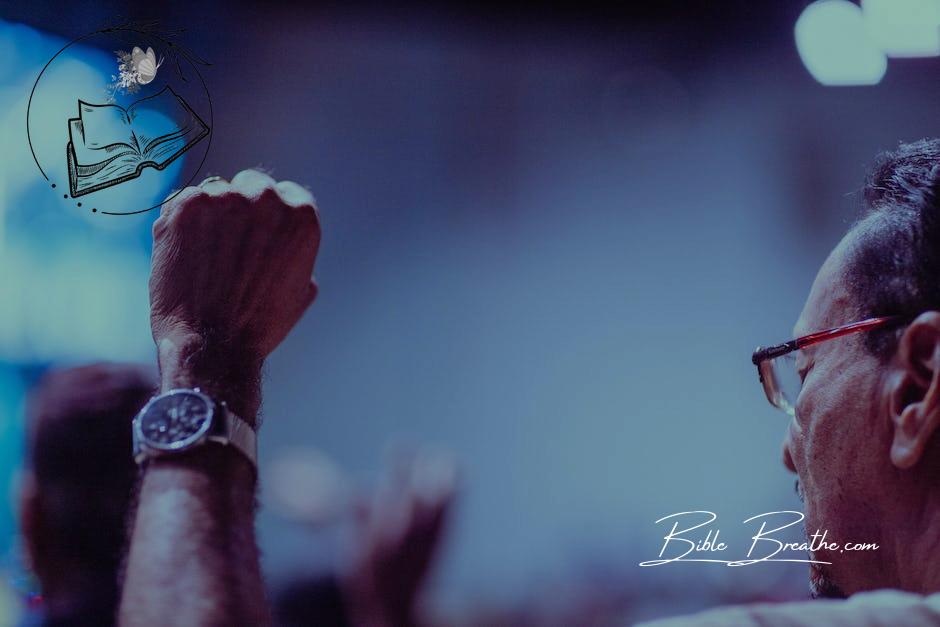The God Who Sees: El Roi Unveiled
Hey there, fam!
Today, we’re diving into something truly amazing.
Ever felt like you’re just a speck in this big universe, wondering if anyone sees your struggles and triumphs?
Well, buckle up, because we’re talking about “El Roi,” a name of God that’s like a warm hug from the heavens.
Picture this: you’re in the thick of life, just like Hagar, a young woman in the Bible, who was going through a seriously rough patch.
But guess what?
In the midst of her despair, she met an angel and declared, “You are the God who sees me.” That, my friends, is “El Roi” right there!
Now, you might not have heard this name as often as Jehovah Jireh or Yahweh, but it’s a game-changer.
It’s about God’s vision and care for those of us who sometimes feel invisible, like we’re stuck on the sidelines.
“El Roi” tells us that in this vast universe, God’s eyes are always on us.
He’s everywhere, and that means He’s right there with you in your daily grind.
This story of Hagar?
It’s all about God’s relationship with the marginalized.
It’s a testament to His love and how He’s not some far-off deity.
No, He’s right here, in the trenches with us.
So, let’s take a deep dive into the Bible, into the lives of Abraham, Sarah, and Hagar, and let’s unpack what “El Roi” really means.
It’s not just a name; it’s a promise.
It’s God telling you, “I see you. I’m right here with you, through every high and low.”
So, if you’ve ever felt like you’re invisible, this is your moment to discover the incredible truth about “El Roi,” the God who sees you, loves you, and never lets you out of His sight. 🌟
Key Takeaways
- The importance of recognizing God as the one who sees us: The phrase the God who sees Hebrew carries deep theological significance. It reminds us that God is not distant or detached but is intimately aware of our lives, circumstances, and struggles. Acknowledging Him as the one who sees us emphasizes His omniscience and His personal concern for each individual.
- The comfort and assurance that comes from knowing God is always watching over us: Understanding God as “the God who sees” brings immense comfort and assurance. It means that even in our moments of loneliness, distress, or invisibility, God is present and attentive. His watchful gaze offers solace and a sense of security, knowing that we are never truly alone.
- Recognizing God as “the God who sees” invites us to deepen our relationship with Him. It encourages us to confide in Him, share our joys and sorrows, and seek His guidance and protection in all aspects of our lives.
- This concept underscores the belief that nothing in our lives goes unnoticed by God. He sees our needs, our struggles, and our triumphs, and He cares about them deeply.
- Embracing the idea of “the God who sees” in our faith journey can lead to a profound sense of connection with God and a heightened awareness of His presence in our lives. It reinforces the belief that we are known and loved by a God who watches over us with unwavering care and concern.
“El Roi”: The God Who Keeps an Eye on You
Photo modified by BibleBreathe.com. Original photo by David Dibert on Pexels
Hey there, seekers of spiritual wisdom!
Today, let’s unravel the beautiful concept of “El Roi,” also known as “The God Who Sees.” It’s like having a divine security camera that never blinks, capturing every moment of our lives.
The Marvel of “El Roi”: The God Who Sees Us
So, what’s the deal with “El Roi”?
Well, in Hebrew, it’s a tag team of two words: “El” (meaning God, the big boss) and “Roi” (rooted in “Ra’ah,” signifying seeing, getting it, and understanding).
Put them together, and you’ve got “El Roi,” the God who intimately observes, perceives, and understands everything about us.
Imagine this: It’s like God has a front-row seat to your life’s movie.
He’s not just watching; He’s invested in your story, from the opening scene to the closing credits.
“Ro’iy” in Hebrew: More Than Meets the Eye
Now, let’s dive into “Ro’iy,” the Hebrew root.
It’s not just about physical sight; it’s about understanding, caring, and providing.
Picture this: God as the caring shepherd, watching over His flock.
He’s not just counting sheep; He’s making sure they’re safe and sound.
This whole idea is deeply rooted in the Bible, and there’s a powerful story to back it up.
Think about Hagar, the Egyptian maidservant.
She’s in the wilderness, feeling lost and abandoned, when suddenly, she encounters a divine messenger.
Overwhelmed, she has an “Aha!” moment and calls God “El Roi.”
“Thou God seest me.” – Genesis 16:13 (KJV)
Hagar’s experience speaks volumes.
It tells us that God’s gaze isn’t just on the main stage; it’s backstage, in the audience, and even in the forgotten corners.
He’s there for the downtrodden and the outcasts, offering comfort and hope.
“El Roi” isn’t just a catchy name; it’s a rock-solid pillar of faith.
It reminds us that God’s vision covers every inch of our lives, especially when we’re feeling lost and low.
So, remember, you’re never alone in this grand theater of life because “El Roi” is always watching out for you.
Genesis 16:13-14: Meeting the “God Who Sees”
Photo modified by BibleBreathe.com. Original photo by Ric Rodrigues on Pexels
Imagine wandering in a desert, feeling lost and abandoned, much like Hagar, a maidservant who found herself in a tough spot.
But in the midst of her despair, something incredible happens—an encounter with the divine, known as “El Roi.”
The Backdrop of Genesis 16:13-14
Picture this: Hagar, having fled from the trying circumstances in the household of Abraham and Sarah, stumbles upon an angel of the Lord in the wilderness.
She’s overwhelmed, alone, and weary.
However, in this desolate place, she receives divine reassurance and a promise that her son, Ishmael, will father a multitude of descendants.
“And she called the name of the LORD that spake unto her, Thou God seest me: for she said, Have I also here looked after him that seeth me?” – Genesis 16:13 (KJV)
Unveiling the Meaning of “El Roi”
Now, let’s dive into the heart of it.
The words “Thou God seest me” in English are a translation of “Ro’iy Elohim” in Hebrew, which means “The God who sees me.” What a revelation!
Hagar’s declaration captures a profound truth: God intimately observes our struggles and circumstances.
“El Roi” portrays God as the all-seeing and all-understanding deity, bringing solace and hope to those who feel downtrodden.
In this scripture, “El Roi” becomes the moment when Hagar fully comprehends the depth of God’s care and watchfulness in her life, even though she was a marginalized individual.
It’s a testament to God’s compassion and vigilance, especially for those in distress or on society’s fringes.
Hagar’s encounter with the “God Who Sees” transforms her outlook, serving as a reminder to all of us that God’s watchful eye is always upon us, offering comfort and guidance precisely when we need it most.
So, even in your moments of isolation and despair, know that you’re not alone—El Roi is with you, seeing and caring for your every need.
The Divine Drama: Abraham, Sarah, and Hagar
Photo modified by BibleBreathe.com. Original photo by Pavel Danilyuk on Pexels
Alright, folks, buckle up for a biblical blockbuster featuring Abraham, Sarah, and Hagar.
This story’s got it all – faith, human drama, and a touch of divine intervention.
And at the heart of it, we’ve got Hagar, starring as “The God Who Sees” in action.
Setting the Scene
So, we’ve got Abraham, the granddaddy of many nations, and his wife Sarah.
God promised them more descendants than you can count.
But here’s the twist: Sarah couldn’t have kids, and doubt started creeping in.
In a moment of desperation, Sarah had an idea.
She said, “Hey, Abraham, why not have a child with my maidservant, Hagar?”
Hagar becomes pregnant, and oh boy, things get messy.
There’s tension and jealousy flying around like confetti at a party.
Hagar’s had enough of Sarah’s less-than-friendly vibes and decides to hit the road.
She ends up in the wilderness, and that’s where the real magic happens.
Hagar’s Wilderness Adventure: A Date with Divinity
Out there in the wild, Hagar gets a surprise visit from an angel of the Lord.
This isn’t your average meet and greet; it’s a life-changing encounter.
The angel tells Hagar that her descendants will be as numerous as the stars and even gives her son a name – Ishmael.
“And she called the name of the LORD that spake unto her, Thou God seest me: for she said, Have I also here looked after him that seeth me?” – Genesis 16:13 (KJV)
This moment is like a neon sign that says, “God is watching, and He’s got your back.” It’s a reminder that even when you feel lost in the wilderness of life, God’s eyes are on you.
Why It All Matters
Now, here’s the deep stuff.
The Abraham, Sarah, and Hagar saga isn’t just a family feud; it’s a masterclass in faith, human choices, and how God’s promises play out.
It’s a showcase of God’s big plan, showing how He provides and cares for us, even when we make a mess of things.
“El Roi,” the God who sees, takes center stage in Hagar’s moment, revealing God’s compassion for the marginalized and His deep involvement in our messy human lives.
So, next time you’re feeling like you’re wandering in the wilderness, remember, “El Roi” is watching over you, and the divine script of your life is still unfolding.
This is one story you won’t want to miss!
Word count: 323
The God Who Sees: Unveiling God’s Heart for the Overlooked
Photo modified by BibleBreathe.com. Original photo by Eduardo Braga on Pexels
Imagine a grand tapestry of human society, woven with threads of diverse lives.
Yet, within this intricate design, there are always those threads that often go unnoticed, marginalized, and pushed to the fringes.
But here’s the profound truth: in the eyes of God, no one is ever truly unseen or unheard.
Let’s unravel the concept of “The God Who Sees,” embodied by “El Roi,” and discover God’s unwavering vision for those whom society may overlook.
How God’s Vision Transcends Human Limits
God’s vision knows no bounds; it transcends our earthly biases and prejudices.
He perceives the broken-hearted, the oppressed, and the marginalized with a depth of understanding that surpasses human comprehension.
While society may dismiss those it deems unimportant, God’s gaze falls upon them, recognizing their immeasurable worth and understanding their struggles.
God’s vision of the marginalized is firmly rooted in His unchanging character, marked by compassion, justice, and love.
He stands as a sturdy refuge for the downtrodden, offering solace and hope even in the darkest of times.
Biblical Examples: God’s Tender Care for the Unseen
As we journey through the Bible, we encounter numerous instances where God’s care and concern shine brightly for the marginalized.
Take the story of Hagar, a maidservant cast into the unforgiving wilderness.
In her moment of despair, God appeared to her as “El Roi,” assuring her of His presence and providing for her needs, demonstrating that God sees and cares for the overlooked.
Another remarkable tale is that of Ruth, a foreigner and widow, who found favor in the eyes of God.
Through her unwavering loyalty and faithfulness, she became an essential part of the lineage leading to King David and, ultimately, to Jesus Christ.
“The LORD is nigh unto them that are of a broken heart; and saveth such as be of a contrite spirit.” – Psalm 34:18 (KJV)
These stories, among many others, reflect God’s unwavering commitment to seeing and caring for the marginalized.
“El Roi” shines as a beacon of hope, reminding us that in the eyes of God, no one is ever insignificant or forgotten.
Word count: 300
Celebrating “El Roi”: The God Who Keeps an Eye on Us
Photo modified by BibleBreathe.com. Original photo by Pixabay on Pexels
Let’s gather ’round, my friends, and talk about why we should give God a standing ovation as “El Roi,” the God who sees it all.
When we use this name, we’re not just saying hi; we’re recognizing His superpowers – He’s everywhere, all-powerful, and knows us inside out.
Now, let’s break it down.
God’s Omni-Presence: Beyond Time and Space
So, “El Roi” isn’t just about God having a good pair of cosmic binoculars.
No, it’s way bigger than that.
It’s about Him being everywhere, all the time.
Picture this: He’s not just watching from the sidelines; He’s right there in the game with us, no matter where or when it is.
This means that God is your constant companion.
In the highs and lows, the wins and losses, He’s right there, offering a helping hand and a shoulder to lean on.
God’s Omni-Potence: The Ultimate Powerhouse
When we call God “El Roi,” we’re giving Him a superhero title – the all-powerful one.
He’s got the keys to the universe, and nothing is out of His league.
He can turn things around, heal what’s broken, and make the impossible possible.
This power should boost your confidence.
You’ve got a God who can step into your story, rearrange the plot, and turn hardships into blessings.
Knowing that God’s Got Your Back, Inside Out
“El Roi” is like having a personal confidant who knows you better than you know yourself.
He sees it all – your fears, your doubts, your happy dances, and your moments of despair.
He’s got your whole life on His radar.
You’re never alone because He’s intimately acquainted with your story.
Knowing this, you can approach God with all your raw, unfiltered emotions.
Pour your heart out, knowing that He sees you, embraces you, and responds with open arms and boundless love.
When we lift our voices in praise to “El Roi,” we’re celebrating His all-seeing, all-powerful, and all-knowing nature.
It’s like giving a standing ovation to the God who watches over us, cares for us, and guides us every step of the way.
Word count: 299
A Heartfelt Prayer to “El Roi”: The God Who Sees
Photo modified by BibleBreathe.com. Original photo by Luis Quintero on Pexels
Dear “El Roi,”
Imagine this: we gather before you in absolute awe and deep reverence, acknowledging your divine presence as the all-seeing and all-knowing God.
You’re the one who not only perceives every atom in the vast expanse of the universe but also comprehends every thought and desire of our hearts.
With humble hearts, we come before you seeking comfort and assurance.
In a world where it’s all too easy to feel unnoticed and unheard, we find profound solace in knowing that you see us.
You witness our joys and triumphs, celebrating alongside us.
You’re right there when we face our trials and sorrows, offering your comforting embrace.
We take refuge in the unshakable truth that no circumstance can escape your vigilant gaze.
Oh, “El Roi,” we lean on your ever-present nature, understanding that you accompany us through every twist and turn of our journey.
You are our unwavering companion in the darkest of nights and the brightest of days.
We humbly ask for the grace to always sense your presence, to place our trust in your wisdom, and to yield to your divine plan.
Grant us the wisdom to discern our paths, for you see the intricate details of our lives that may elude our understanding.
Dear God, guide us as we navigate life’s complexities, helping us make choices that honor you and bring blessings to others.
El Roi,” we lay before you our fears and anxieties, as well as our hopes and dreams.
You know them all intimately.
We place our trust in your perfect timing and abundant provision.
Bless us with the courage to surrender our concerns to you, recognizing that your vision extends far beyond our limited perspective.
In this sacred moment of prayer, we take comfort in the knowledge that we are seen by you.
Your love knows no bounds, your grace is without end, and your mercy endures forever.
Thank you for being the God who sees, loves, and cares for us.
In your sacred name, we offer this prayer,
Amen.
Frequently Asked Questions (FAQs) About The God Who Sees Hebrew
What does “El Roi” mean in Hebrew?
El Roi in Hebrew means ‘The God Who Sees.’ It’s a name given to God in the Bible, emphasizing His omniscience and His ability to see and care for individuals in their times of need.
How is the name “El Roi” significant in the Bible?
El Roi is significant in the Bible as it highlights God’s omniscience and His care for individuals.
It was used by Hagar when she encountered God in the wilderness, acknowledging that God saw her distress.
This demonstrates God’s personal, attentive nature and His willingness to intervene in our lives.
How does the story of Hagar relate to the name “El Roi”?
The name ‘El Roi,’ meaning ‘the God who sees,’ was given to God by Hagar after her encounter with Him.
It signifies God’s awareness and concern for the afflicted.
The story of Hagar reflects God’s compassion and attentiveness to those in distress, solidifying the association between her experience and the name given to God.

